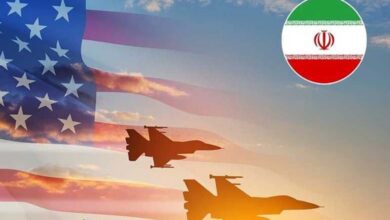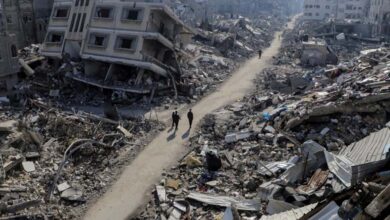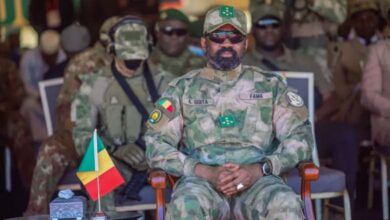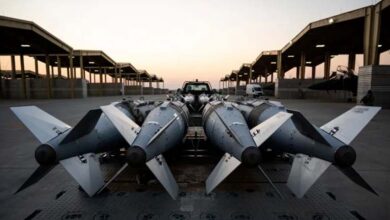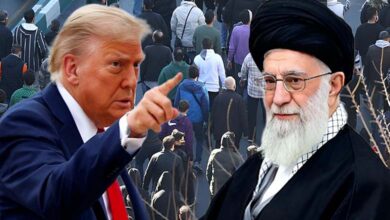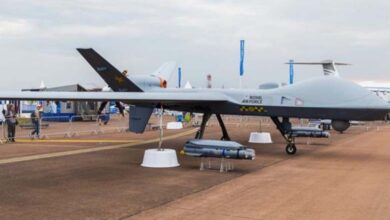U.S. Pressure on Baghdad Mounts to Halt Attacks on Kurdistan’s Oil Industry
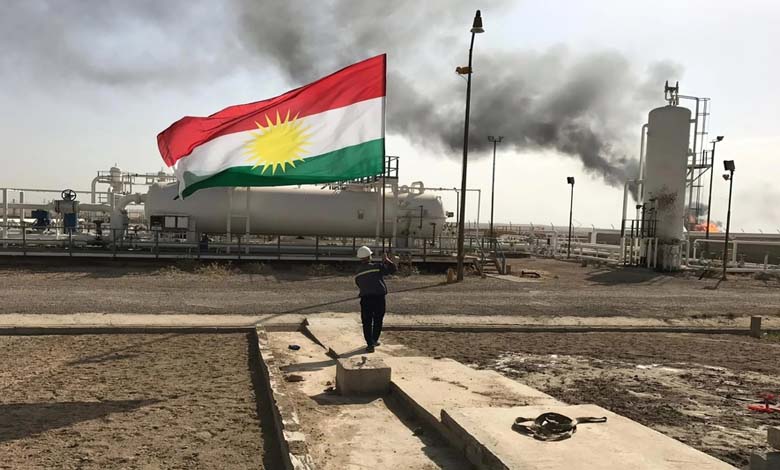
American officials are ramping up pressure on the Iraqi government, led by Prime Minister Mohammed Shia al-Sudani, in a bid to stop repeated drone attacks targeting foreign oil companies — including American firms — operating in the Kurdistan region of Iraq. These diplomatic efforts come in response to a series of drone strikes on oil installations in northern Iraq, amid suspicions of involvement by Iran-aligned armed groups.
-
Al-Sudani: We Successfully Kept Iraq Out of War and Conflict Zones
-
Al-Sudani Calls for an End to Regional Interventions in Iraq
In a notable development, Republican Congressman Joe Wilson called on Thursday for tough economic action against Baghdad. He urged the U.S. to block Iraq’s access to its oil revenues held at the Federal Reserve Bank of New York. On X (formerly Twitter), Wilson wrote: “Iran-backed militias attacking U.S. forces and energy companies in the Kurdistan Region must not be tolerated.”
He added: “Prime Minister Mohammed Shia al-Sudani must take concrete steps to end these attacks. If they continue, the U.S. must reconsider allowing Iraq access to its oil funds. Silence and inaction will have serious consequences.”
-
U.S. Moves to Sanction Baghdad Over Iranian Influence
-
Ballot Cards and Partisan Directives: Fears of Electoral Interference by Iraq’s Popular Mobilization Forces (PMF)
Wilson’s comments serve as a clear warning to Baghdad, which still benefits from a financial system established by a 2003 UN resolution, whereby Iraqi oil and gas revenues are deposited into a Development Fund for Iraq (DFI) account managed by the U.S. Federal Reserve. Although Iraq completed its war reparations to Kuwait in 2022 — totaling over $52 billion — this mechanism remains critical for the country’s international financial operations.
Washington fears that these funds may be used unchecked, especially in light of what it perceives as leniency by the Iraqi government toward Iranian-linked militias that continue to escalate attacks in the north.
-
Iranian Interests Behind the Coordination Framework’s Persistence in Expelling U.S. Forces from Iraq
-
Qaani in Baghdad to Impose Iranian Agendas on the Arab Summit
On the ground, several drone attacks have recently targeted oil facilities in Iraqi Kurdistan, leading to a production cut of more than 50%, according to energy officials. The region’s counterterrorism agency confirmed that a drone struck the Tawke oil field on Thursday, operated by Norwegian company DNO, near Zakho on the Turkish border. It was the second attack on DNO facilities within a week.
No group has officially claimed responsibility, but security sources told Reuters that the drones were launched from areas controlled by Iranian-backed militias in northern Iraq.
-
U.S. Report: Iran Supplies Long-Range Missiles to Iraqi Factions for the First Time
-
Growing Calls to Turn Halabja into an Iraqi Governorate and Justice for the Victims
The Ain Sifni oil field in Dohuk province, run by American company Hunt Oil, also came under attack. The company announced a temporary shutdown of operations, stating that no staff were injured, and that an assessment would be conducted before resuming activity.
Preliminary estimates suggest that the attacks halted between 140,000 and 150,000 barrels of daily output, out of the Kurdistan Region’s total production of approximately 280,000 barrels per day — over 50% of its capacity. These attacks coincide with renewed Houthi strikes on shipping routes in the Red Sea, part of a broader escalation attributed to Iran’s regional allies.
-
Washington Wields the Maximum Pressure Card against Baghdad
-
Iran Threatens to Carry Out Strikes in the Kurdistan Region
Analysts see the targeting of Western firms in Kurdistan as a double message: applying pressure on the Kurdistan Regional Government in its long-standing dispute with Baghdad over oil revenues and control, and simultaneously signaling to Washington by striking at its economic interests.
Al-Sudani finds himself caught between growing American demands and the entrenched power of armed factions inside Iraq. Despite his efforts to maintain a diplomatic balance between Tehran and Washington, repeated attacks on U.S. interests threaten to undermine this fragile equilibrium.
-
The Fate of Syrian Officers in Iraq Depends on Agreements with Syria
-
Latest Developments on the Syrian Scene
Calls are growing within the U.S. Congress to increase oversight of Iraq’s financial dealings and to link continued economic cooperation to Baghdad’s willingness to curb militia influence.
However, al-Sudani remains reluctant to confront the militias directly, many of which are integral to the political coalition backing his government — a factor that limits his policy options.
Amid military escalation and Congressional pressure, the future of foreign oil investment in Kurdistan hinges on the Iraqi government’s ability to provide real security guarantees. Any move by the U.S. to restrict Iraq’s access to oil revenues could trigger a severe economic crisis and reignite tensions between Baghdad and Washington.
-
Attack on Saraya al-Salam Headquarters Disrupts Security Calm in Diyala
-
Iraqi Move to Release Frozen Iranian Funds in Baghdad
-
Khamenei Urges Continued Cooperation with Iraq After Raisi’s Era
-
Postponement of the Iraqi Kurdistan Parliament Elections Becomes Inevitable
-
Attack Targets Base Housing Iraqi Army and Hashd
-
Iraq Supports Establishing Joint Operations Center with Turkey to Pursue PKK
-
Security Summit Between Turkey and Iraq Dominated by Kurdish Rebels Issue


